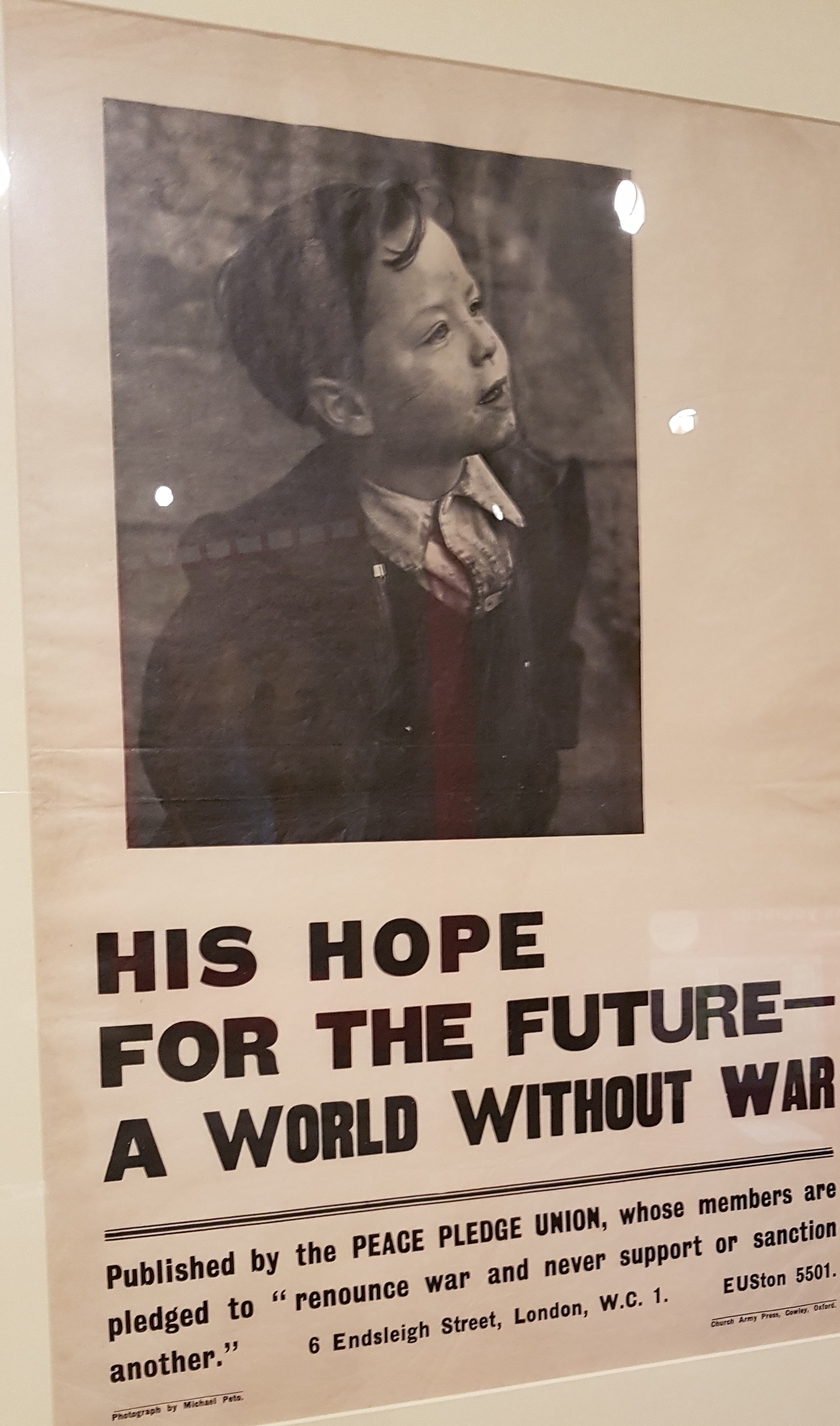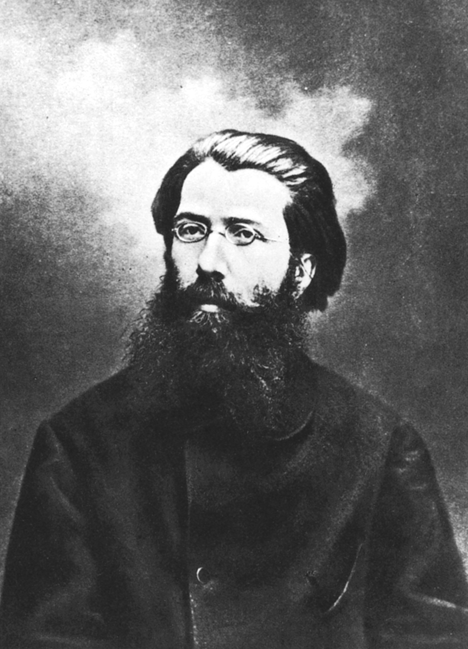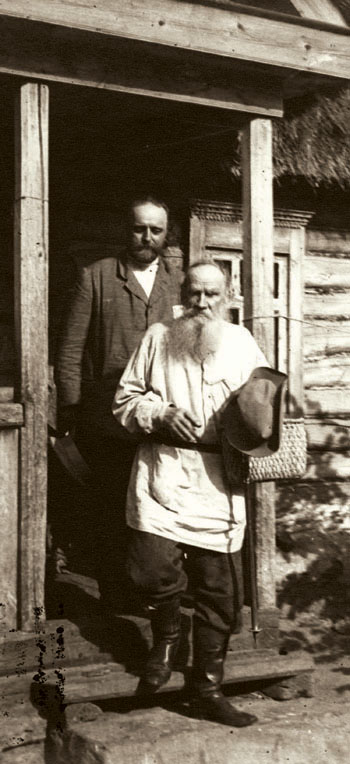|
Anarcho-pacifist
Anarcho-pacifism, also referred to as anarchist pacifism and pacifist anarchism, is an anarchist school of thought that advocates for the use of peaceful, non-violent forms of resistance in the struggle for social change. Anarcho-pacifism rejects the principle of violence which is seen as a form of power and therefore as contradictory to key anarchist ideals such as the rejection of hierarchy and dominance. Many anarcho-pacifists are also Christian anarchists, who reject war and the use of violence. Anarcho-pacifists reject the use of violence, but accept non-violent revolutionary action against capitalism and the state with the purpose of establishing a peaceful voluntarist society. The main early influences were the philosophies of Henry David Thoreau and Leo Tolstoy while later the ideas of Mahatma Gandhi gained significance. Anarcho-pacifist movements primarily emerged in the Netherlands, Russia, the United Kingdom and the United States before and during World War II. Hist ... [...More Info...] [...Related Items...] OR: [Wikipedia] [Google] [Baidu] |
Leo Tolstoy
Count Lev Nikolayevich Tolstoy Tolstoy pronounced his first name as , which corresponds to the romanization ''Lyov''. () (; ,Throughout Tolstoy's whole life, his name was written as using Reforms of Russian orthography#The post-revolution reform, pre-reform Russian orthography. ; ), usually referred to in English as Leo Tolstoy, was a Russian writer. He is regarded as one of the greatest and most influential authors of all time. Born to an aristocratic family, Tolstoy achieved acclaim in his twenties with his semi-autobiographical trilogy, ''Childhood (Tolstoy novel), Childhood'', ''Boyhood (novel), Boyhood'' and ''Youth (Tolstoy novel), Youth'' (1852–1856), and with ''Sevastopol Sketches'' (1855), based on his experiences in the Crimean War. His ''War and Peace'' (1869), ''Anna Karenina'' (1878), and ''Resurrection (Tolstoy novel), Resurrection'' (1899), which is based on his youthful sins, are often cited as pinnacles of Literary realism, realist fiction and three of th ... [...More Info...] [...Related Items...] OR: [Wikipedia] [Google] [Baidu] |
Peace Pledge Union
The Peace Pledge Union (PPU) is a non-governmental organisation that promotes pacifism, based in the United Kingdom. Its members are signatories to the following pledge: "War is a crime against humanity. I renounce war, and am therefore determined not to support any kind of war. I am also determined to work for the removal of all causes of war", and campaign to promote peaceful and nonviolent solutions to conflict. The PPU forms the British section of War Resisters' International. History Formation The PPU emerged from an initiative by Hugh Richard Lawrie 'Dick' Sheppard, canon of St Paul's Cathedral, in 1934, after he had published a letter in the ''Manchester Guardian'' and other newspapers, inviting men (but not women) to send him postcards pledging never to support war. Andrew Rigby, "The Peace Pledge Union: From Peace to War, 1936–1945" in Peter Brock, Thomas Paul Socknat ''Challenge to Mars:Pacifism from 1918 to 1945''. University of Toronto Press, 1999. (pp. 169� ... [...More Info...] [...Related Items...] OR: [Wikipedia] [Google] [Baidu] |
Fusil Brisé & Anarchisme , a kind of polytope
{{disambig ...
Fusil may refer to: *Fusil, a light flintlock musket used by a fusilier *Fusil (heraldry), a heraldic ordinary similar to a lozenge *Gerald Fusil, creator of the Raid Gauloises adventure race *Duopyramid In geometry of 4 dimensions or higher, a double pyramid, duopyramid, or fusil is a polytope constructed by 2 orthogonal polytopes with edges connecting all pairs of vertices between the two. The term fusil is used by Norman Johnson as a rhomb ... [...More Info...] [...Related Items...] OR: [Wikipedia] [Google] [Baidu] |
Nonviolent Resistance
Nonviolent resistance, or nonviolent action, sometimes called civil resistance, is the practice of achieving goals such as social change through symbolic protests, civil disobedience, economic or political noncooperation, satyagraha, constructive program, or other methods, while refraining from violence and the threat of violence. This type of action highlights the desires of an individual or group that feels that something needs to change to improve the current condition of the resisting person or group. Mahatma Gandhi is the most popular figure related to this type of protest; United Nations celebrates Gandhi's birthday, October 2, as the International Day of Non-Violence. Other prominent advocates include Abdul Ghaffar Khan, Henry David Thoreau, Etienne de la Boétie, Charles Stewart Parnell, Te Whiti o Rongomai, Tohu Kākahi, Leo Tolstoy, Alice Paul, Martin Luther King Jr., Daniel Berrigan, Philip Berrigan, James Bevel, Václav Havel, Andrei Sakharov, Lech Wałę ... [...More Info...] [...Related Items...] OR: [Wikipedia] [Google] [Baidu] |
Individualist Anarchist
Individualist anarchism or anarcho-individualism is a collection of anarchist currents that generally emphasize the individual and their will over external determinants such as groups, society, traditions, and ideological systems. Individualist anarchism can be divided into two main distinct movements, each with its own ideological orientations and choices. On one hand, there is American individualist anarchism, which began with Warren in the 1860s. It focuses primarily on economic freedom, drawing upon Stirner's egoist anarchism and Proudhon's mutualism, and develops perspectives that are notably financial in nature. Most American individualist anarchists of the 19th century advocated mutualism, a libertarian socialist form of market socialism, or a free-market socialist form of classical economics. American individualist anarchists are opposed to property that violates the entitlement theory of justice, that is, gives privilege due to unjust acquisition or exchange ... [...More Info...] [...Related Items...] OR: [Wikipedia] [Google] [Baidu] |
Ferdinand Domela Nieuwenhuis
Ferdinand Jacobus Domela Nieuwenhuis (31 December 1846 – 18 November 1919) was a Dutch socialist politician and later a social anarchist and anti-militarist. He was a Lutheran preacher who, after he lost his faith, started a political fight for workers. He was a founder of the Dutch socialist movement and the first socialist in the Dutch parliament. Biography Ferdinand Domela Nieuwenhuis was born in Amsterdam, the son of Ferdinand Jacob Domela Nieuwenhuis, Lutheran pastor and professor of theology, and Henriette Frances Berry. When Nieuwenhuis was ten years old, his mother died. His brother was art collector Adriaan Jacob Domela Nieuwenhuis. His family added the second surname "Domela" in 1859. After he died in Hilversum at the age of 72 on 18 November 1919, he was one of the first to be cremated and interred at Westerveld in Velsen. His funeral procession, attended by 12,000 sympathizers, traveled through Amsterdam.NRC, 22 November 1919, avondblad See also * Anarc ... [...More Info...] [...Related Items...] OR: [Wikipedia] [Google] [Baidu] |
Propaganda Of The Deed
Propaganda of the deed, or propaganda by the deed, is a type of direct action intended to influence public opinion. The action itself is meant to serve as an example for others to follow, acting as a catalyst for social revolution. It is primarily associated with acts of violence perpetrated by proponents of insurrectionary anarchism in History of anarchism, the late 19th and early 20th century, including bombings and assassinations aimed at Statism, the state, the ruling class in a spirit of anti-capitalism, and church arsons targeting religious groups, even though propaganda of the deed also had nonviolent resistance, non-violent applications. These acts of terrorism were intended to ignite a "spirit of revolt" by demonstrating the state, the middle and upper classes, and religious organizations were not omnipotent as well as to provoke the State to become escalatingly repressive in its response. The 1881 London Social Revolutionary Congress gave the tactic its approval. Theore ... [...More Info...] [...Related Items...] OR: [Wikipedia] [Google] [Baidu] |
Russia
Russia, or the Russian Federation, is a country spanning Eastern Europe and North Asia. It is the list of countries and dependencies by area, largest country in the world, and extends across Time in Russia, eleven time zones, sharing Borders of Russia, land borders with fourteen countries. Russia is the List of European countries by population, most populous country in Europe and the List of countries and dependencies by population, ninth-most populous country in the world. It is a Urbanization by sovereign state, highly urbanised country, with sixteen of its urban areas having more than 1 million inhabitants. Moscow, the List of metropolitan areas in Europe, most populous metropolitan area in Europe, is the capital and List of cities and towns in Russia by population, largest city of Russia, while Saint Petersburg is its second-largest city and Society and culture in Saint Petersburg, cultural centre. Human settlement on the territory of modern Russia dates back to the ... [...More Info...] [...Related Items...] OR: [Wikipedia] [Google] [Baidu] |
Tolstoyan Movement
The Tolstoyan movement () is a social movement based on the philosophical and religious views of Russian novelist Leo Tolstoy (1828–1910). Tolstoy's views were formed by rigorous study of the ministry of Jesus, particularly the Sermon on the Mount. Tolstoy expressed "great joy" that groups of people "have been springing up, not only in Russia but in various parts of Europe, who are in complete agreement with our views." However, the author also thought it was a mistake to create a specific movement or doctrine after him, urging individuals to listen to their own conscience rather than blindly follow his. In regard to a letter he received from an adherent, he wrote: Beliefs and practices Tolstoyans (, ''Tolstovtsy'') identify themselves as Christians, but do not generally belong to an institutional Church. Tolstoy was a harsh critic of the Russian Orthodox Church, leading to his excommunication in 1901. Tolstoyans tend to focus more on following the teachings of Jesus, ... [...More Info...] [...Related Items...] OR: [Wikipedia] [Google] [Baidu] |
Christian Anarchism
Christian anarchism is a Christian movement in political theology that claims anarchism is inherent in Christianity and the Gospels. It is grounded in the belief that there is only one source of authority to which Christians are ultimately answerable—the authority of God as embodied in the teachings of Jesus. It therefore rejects the idea that human governments have ultimate authority over human societies. Christian anarchists denounce the state, believing it is violent, deceitful and idolatrous. Christian anarchists hold that the "Kingdom of God" is the proper expression of the relationship between God and humanity. Under the "Kingdom of God", human relationships would be characterized by horizontal organization, servant leadership, and universal compassion—not through the traditional structures of organized religion, which most Christian anarchists consider hierarchical and/or authoritarian structures. Most Christian anarchists are also pacifists who reject war, militar ... [...More Info...] [...Related Items...] OR: [Wikipedia] [Google] [Baidu] |
Peter Brock (historian)
Peter Brock (1920–2006) was an English-born Canadian historian who specialized in the history of pacifism and Eastern Europe. Life Peter Brock was born in 1920 on Guernsey, Channel Islands. Although he came from a military family, he rejected this tradition. While studying at Exeter College, Oxford, he came under the influence of pacifist ideas, particularly those of Bart de Ligt.Harvey Dyck and Andrew Rossos. "Peter Brock (1920-2006)", ''Canadian Slavonic Papers'', Vol. 49, No. 1/2 (March–June 2007), pp. 1-4 During the Second World War, he declared as a conscientious objector and was briefly imprisoned. He spent the rest of the war on alternative service, including working in a hospital. After the war, Brock worked with a Quaker relief mission to Germany and Poland, sparking his interest in Eastern Europe. After the mission ended, Brock took graduate study at Jagiellonian University, receiving a doctorate in history in 1950. Brock later emigrated to Canada and settled ther ... [...More Info...] [...Related Items...] OR: [Wikipedia] [Google] [Baidu] |
Individualist Anarchism
Individualist anarchism or anarcho-individualism is a collection of anarchist Anarchism is a political philosophy and Political movement, movement that seeks to abolish all institutions that perpetuate authority, coercion, or Social hierarchy, hierarchy, primarily targeting the state (polity), state and capitalism. A ... currents that generally emphasize the individual and their Will (philosophy), will over external determinants such as groups, society, traditions, and ideological systems. Individualist anarchism can be divided into two main distinct movements, each with its own ideological orientations and choices. On one hand, there is American individualist anarchism, which began with Josiah Warren, Warren in the 1860s. It focuses primarily on economic freedom, drawing upon Max Stirner, Stirner's egoist anarchism and Pierre-Joseph Proudhon, Proudhon's Mutualism (economic theory), mutualism, and develops perspectives that are notably financial in nature. Most Individ ... [...More Info...] [...Related Items...] OR: [Wikipedia] [Google] [Baidu] |








